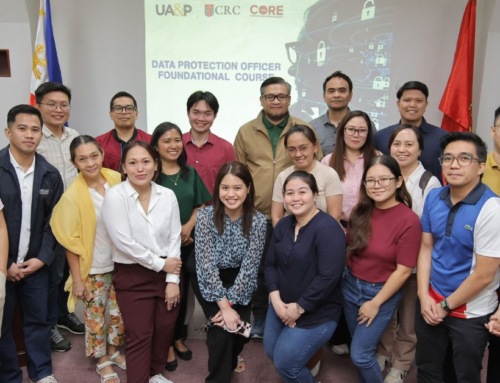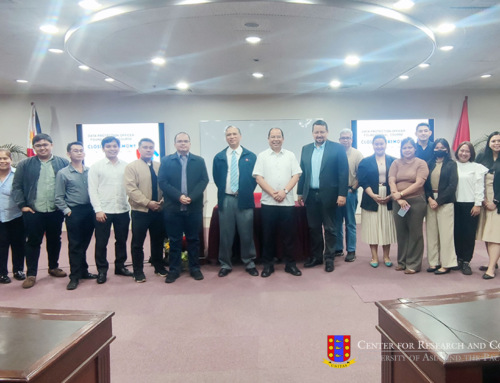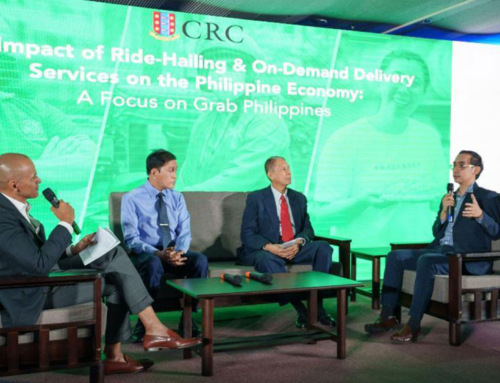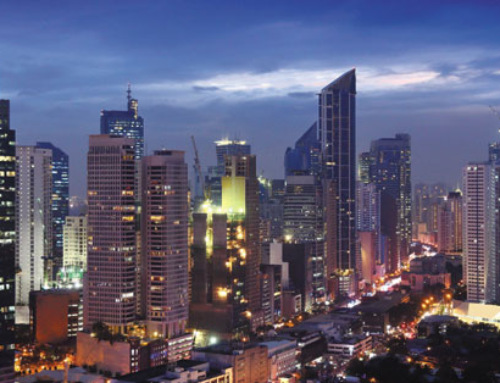“The only way we can eradicate poverty is to grow at 8 to 10% . . . [and to have] direct intervention by the state. But that means farm-to-market roads, irrigation systems, post-harvest facilities . . . we need a lot more.” This was how Dr. Bernardo Villegas opened the round table discussion on the issues and developmental prospects in the Philippine construction industry. The RTD, organized by CRC on December 11, 2015 at the University of Asia and the Pacific, brought together key stakeholders in the construction industry: Secretary Rogelio Singson of the DPWH, representatives from small contractors, contractors’ associations, and NGOs. The participants sought ways to expand the DPWH’s best practices in good governance, and to encourage small contractors to implement transparency and integrity measures in their operations.
Secretary Singson gave a presentation on how the anti-corruption and good governance measures in the DPWH infrastructure program allowed the Department to greatly reduce leakages and increase infrastructure spending from Php 165 billion in 2010 to a projected Php 766 billion in 2016. These measures include identifying the correct projects at the start; having an approved program of work before participating in a bidding; streamlining the bidding process by reducing required documents; eliminating letters of intent which previously allowed bidding officials to screen out rivals; carefully monitoring Bids and Awards Committees; and making details of existing projects available to the public on the DPWH website. With these efforts, the Department has saved Php 48 billion since July 2010.
Mr. Peter Perfecto, Executive Director of the Makati Business Club, gave an overview of the Integrity Initiative project which aims to institutionalize honesty and transparency through control and validation measures. The companies that sign for the project commit to: adapt a universal code of business conduct; have staff attend learning interventions; and complete online integrity self-assessments which are monitored by reviewers. In turn, Integrity Certification gives partner firms competitive advantage vis-à-vis other local firms, as well as government incentives. However, the main driver behind the initiative is the desire to do the right thing, since all company actions impact society.
Datu Farouk Macarambon Sr., President of the National Contractors’ Association of the Philippines, gave an overview of current issues in the Philippine construction industry. Lauding the DPWH’s performance, he recommended that it be replicated in the DOTC, DA, and NHA, and that transparent bidding of projects should be implemented in the ARMM. Other issues include regulating unlicensed contractors; amending the Constitution to facilitate foreign direct investment in infrastructure; standardizing building plans through computer-aided design to facilitate checking; and a need for more AAA contractors since their total stockholder equity (Php 112 billion) is not enough to match the planned Php 357 billion in projects for the 2016 national spending plan.
In the Open Forum, representatives from NGOs and industry associations brought to light other issues and developments in the construction industry—such as how to conduct the on-the-job training of DPWH’s cadet engineers to insulate them from older officials with a greater tendency for corrupt practices; the BIR’s excessive strictness with some large contractors which limits the number of eligible participants for DPWH projects; praise for the synergy among the DPWH, DepEd and Department of Tourism which allows school buildings and access roads to be built with less cost thanks to DPWH’s construction expertise; effective ways of regulating overloaded trucks; ways for small contractors to gain access to DPWH projects; and how workers’ cooperatives could assist construction workers in places where building demand has huge seasonal fluctuations.
Representatives of the Citizens Crime Watch, the Philippine Constructors Association, and Spartan Mining and Dev’t. Corporation also participated in the RTD.
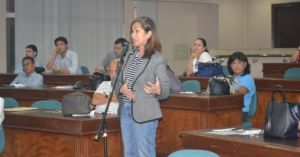
Participants at the Open Forum Participants at the Open Forum
This article was originally posted on 2016-01-04 09:28:29

